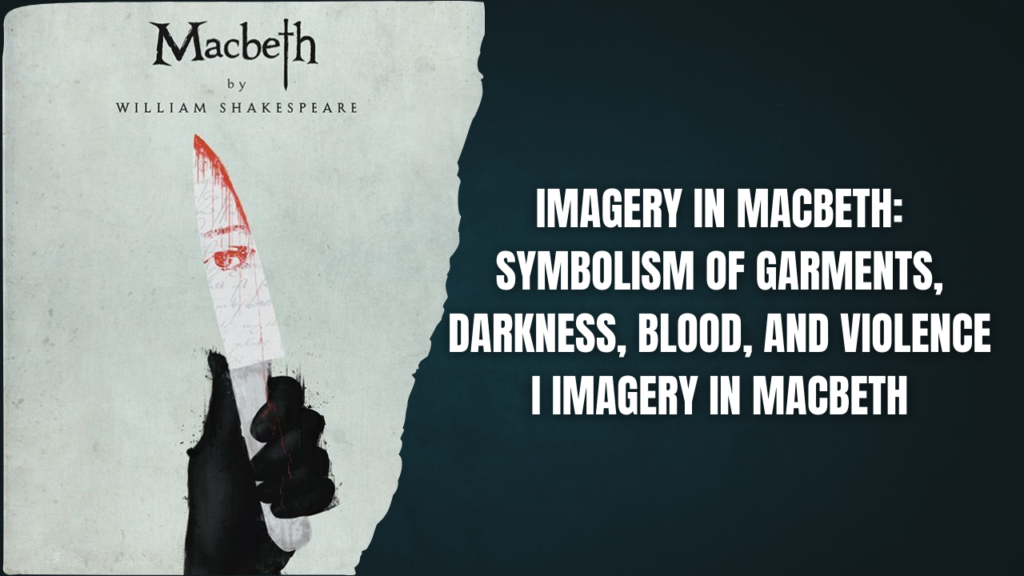QUESTION: Comment on the significance of monarchy or Kingship in the play “Macbeth” by William Shakespeare.
The Theme of Kingship in Macbeth
Monarchy is a form of government with a monarch at the head of the state. Macbeth is a play that dramatizes a story about monarchy, power, authority, order and disorder. The issue of kingship lies at the center in legitimate and illegitimate forms. It includes succession, the rightful transition of authority from one ruler to the next, regicide, the killing of king, usurpation, the wrongful seizure of king’s powers and tyranny and the cruel abuse of power by a state’s ruler. In the course of the play, no less than three Scottish kings wear the crown: Duncan, Macbeth and Malcolm. The English King Edward the Confessor is also mentioned with approval. Banquo receives the politically confusing promise that he will father many kings. All the other characters, even the witches and Lady Macbeth, act either to make a king, to support or protect him, or to destroy him.
The Act of Supremacy and the Monarch’s New Power
Before passing of the “Act of Supremacy”, monarchs were under the control of Roman Catholic Church. The “Acts of Supremacy” are two acts passed by the Parliament of England in the sixteenth century that established the English monarchs as the head of the Church of England. The 1534 Act declared King Henry and his successors as the supreme head of the Church, replacing the Pope. Pope Clement VII refused to approve the annulment of Henry’s marriage to Catherine of Aragon. The English Parliament, at Henry’s insistence, passed the acts that separated English Church from the Roman papacy. Beginning in the early sixteenth century, religious thinkers such as Martin Luther and John Calvin claimed that the Roman Catholic church had become. It was no longer following the words of God, began what has become known as the Protestant Reformation.
The Doctrine of Divine Right of Kings
A political doctrine in defence of monarchical absolutism, which asserted that the kings derived their authority from God. They could not therefore be held accountable for their actions by any earthly authority such as Parliament. With the rise of nation-states and the Protestant Reformation in the late sixteenth century, the theory of divine right justified the king’s absolute authority in both political and spiritual matters. Henry VIII of England declared himself the supreme head of the church of England.
As a political theory, it was further developed by James VI of Scotland (1567-1625). He came to be known as James I of England (1603-1625). Like Elizabeth, James was a strong believer in the divine right of king and the absolute authority. Some critics believe that Macbeth is an act of rebellion after three years of James ascension of the throne. It is a tribute to the king in part because of its many affirmations of divine right. In 1597 James began work on Basilikon Doron, this is a manual on the powers of king, was written in the form of letters to his four year old son, Henry Frederick. James used this document to reinforce the idea that kings were appointed by God and ruled in his name. He explored this idea in more details in The True Law of Free Monarchies (1598).
Duncan as the Model of a Virtuous King
In the course of the play, three kings rule over Scotland: Duncan, Macbeth and Malcolm. A king should be an embodiment of order and orderliness and Duncan is a suitable example of this. Duncan is the model of a good, virtuous king who puts the welfare of the country above his own and seeks like a gardener, to nurture and grow the kingdom that is his responsibility. Duncan is the living embodiment of the political and social order that Macbeth destroys in the play:
“… this Duncan/ Hath borne his faculties so meek, hath been…”
“So clear in his great office, that his virtues/ Will plead like angels, trumpet-tongued, against/ The deep damnation of his taking-off.” (Act I Scene 7)
An uprising against the king which James describes as “monstrous and unnatural” is by extension an uprising against the will of God.
Macbeth’s Rise and Tyrannical Rule
Macbeth is introduced in the play as Scottish nobleman and thane of Glamis. He is made thane of Cawdor for his bravery in the battle, and becomes king of Scotland by murdering the previous king, Duncan. When Macbeth obtains the throne in Duncan’s place, he disrupts the political and social order by taking a position that is not by his right. He brings tyranny as a monarch because of his defiance of nature, and he commits further atrocities to keep himself on the throne: the murders of Banquo, Lady Macduff, and his son. Macduff describes in his speech about the tyranny of Macbeth in Scotland:
“… each new morn,/ New widows howl, new orphans cry, new sorrows/ Strike heaven on the face.” (Act 4 Scene 3)
Malcolm: Restorer of Order and Rightful Heir
Malcolm, elder son of king Duncan to whom the throne of Scotland is designated in the play, flees Scotland in fear after his father Duncan is murdered. But in the end Malcolm with the help of Macduff and an English army eventually overthrows Macbeth and retakes the throne, restoring the order that was destroyed when Duncan was murdered. Malcolm gains his own vices to test Macduff and contemporary rule and power in Scotland. After finding the true loyalty of Macduff, Malcolm marches on Scotland with the Scottish thane to reclaim his birthright from Macbeth. Macduff after losing his family also teaches Malcolm the right meaning of masculinity in the play which is to protect and love one’s own family and country.
Censorship in the Elizabethan Era
The Elizabethan period was a time of rapid change and instability. In order to keep the peace in a time of constant threat, the government relied on censorship. Books and all plays were subjected to censorship by a government official called the Master of the Revels, whose job it was to ensure that no political issues were directly addressed on stage.
The Paradox of Censorship and Macbeth’s Approval
In the end of the play Macbeth it may be questioned that Macduff who was against Macbeth and slayed him to end his tyrannical rule, is against the rule of absolute monarchy as per the doctrine established during the rule of King James I of England. How was it possible that the play The Tragedy of Macbeth passed the censorship process? Macduff who is glorified in the end for slaying Macbeth to free Scotland from tyranny is actually going against absolute rule theory.
A doubt can arise on the passing of the play without having any trouble of censorship law which was there to ensure that no political issues are directly addressed in the play. It is because of the right intention behind Macduff’s killing of Macbeth as shown by William Shakespeare in the play. Macduff kills Macbeth only to restore the legal heir of king Duncan to the throne of Scotland. Malcolm is sanctioned by God, able to act as the head to his kingdom in a way that Macbeth cannot. With Macbeth’s death and Malcolm’s ascension to the throne, the natural order is restored and the land can begin to heal itself under the guidance of king who is capable of compassion and care for his kingdom.


